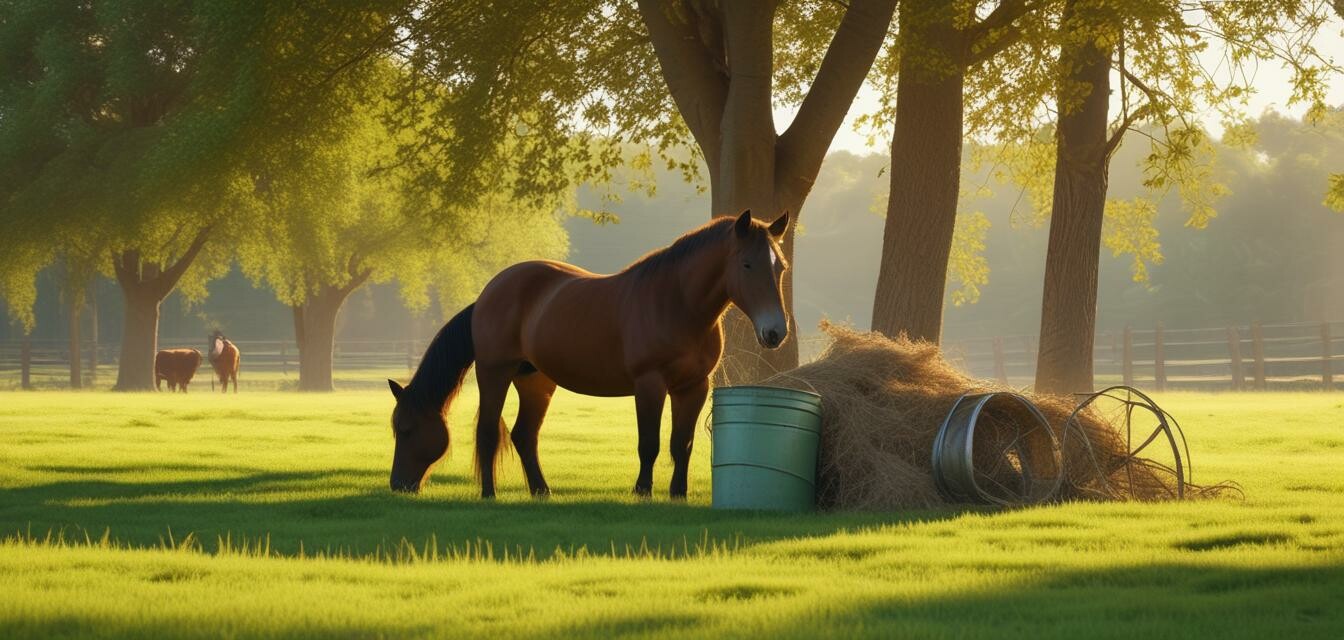
Nutrition Tips for Performance Horses
Key Takeaways
- Proper nutrition is crucial for optimal performance in horses.
- Quality hay and a balanced grain diet contribute significantly to a horse's health.
- Supplements can enhance performance but should be tailored to individual needs.
- Regular veterinary consultations are essential for determining nutritional requirements.
- Hydration is critical; ensure fresh water is always available.
When it comes to ensuring your horse performs at its best, nutrition plays a vital role. Whether you are preparing for competitions or simply want to keep your horse healthy and active, understanding their nutritional needs is integral. This article explores essential nutrition tips for performance horses and reviews effective strategies to optimize their diets.
Understanding equine nutrition
To begin with, it’s important to understand that horses are herbivores and their digestive system is designed to process forage. This means that a horse’s diet primarily consists of grasses and hay. However, performance horses have increased nutritional requirements due to their activity levels.
Components of a balanced diet
A well-rounded diet for performance horses should include the following components:
- Forage: This should be the main component, including high-quality hay or pasture.
- Grains: Grains such as oats or corn can provide extra energy when needed.
- Supplements: Vitamins and minerals are crucial, especially for high-performing horses.
Recommended feeding practices
Establishing a proper feeding routine is essential for your horse’s performance. Here are some strategies to consider:
1. Regular feeding schedule
Consistent feeding times help maintain digestive health and prevent colic. Aim to feed your horse at the same times every day.
2. Monitor body condition
Keep an eye on your horse’s weight and condition score. Adjust feed based on these observations to ensure your horse maintains an ideal body condition.
3. Avoid sudden diet changes
Gradually introduce new feed or supplements to prevent digestive upset. Transition over a week to allow the horse’s system to adjust.
4. Provide plenty of fresh water
Hydration is essential for performance. Ensure your horse has constant access to clean, fresh water.
Key nutrients for performance
Performance horses require certain nutrients in higher amounts. Here are a few important ones:
| Nutrient | Function | Sources |
|---|---|---|
| Protein | Builds and repairs tissues | Alfalfa hay, soybean meal |
| Fats | Provides concentrated energy | Vegetable oils, flaxseed |
| Vitamins (A, D, E) | Supports various bodily functions | Fortified feeds, hay |
| Minerals (Calcium, Phosphorus) | Bone health and muscle function | Mineral blocks, trace mineral supplements |
Using supplements effectively
Supplements can be beneficial for performance horses, but it’s vital to choose them wisely. Here’s a simple guide:
Pros
- Enhances overall performance
- Supports immunity and recovery
- Addresses specific nutritional deficiencies
Cons
- Potential for over-supplementation
- Can lead to expensive feed costs
- Not all supplements are effective
Consultation with equine professionals
Always consult with an equine nutritionist or veterinarian to craft a diet tailored to your horse's specific needs. They can help assess your horse’s condition and suggest the best nutritional strategies.
Essential feeding tips for performance horses
Beginners Section
- Start with high-quality forage like grass hay or alfalfa.
- Introduce grains cautiously; consult a professional for recommendations.
- Use measuring scoops to ensure accurate portion sizes.
- Observe your horse for any changes in behavior or performance.
- Maintain a clean feeding area to prevent contamination.
Conclusion
Nutrition is a fundamental aspect of maintaining a performance horse's health. By following these tips and understanding the nutritional needs specific to your horse's performance level, you can enhance their overall health and capabilities. Always prioritize quality ingredients, seek professional advice, and maintain a vigilant eye on your horse’s condition to ensure they are thriving.
For more insights about horse care and riding techniques, check out our Rider Tips and Advice section.
Explore our extensive selection of equestrian gear and horse care products to support your riding journey.
